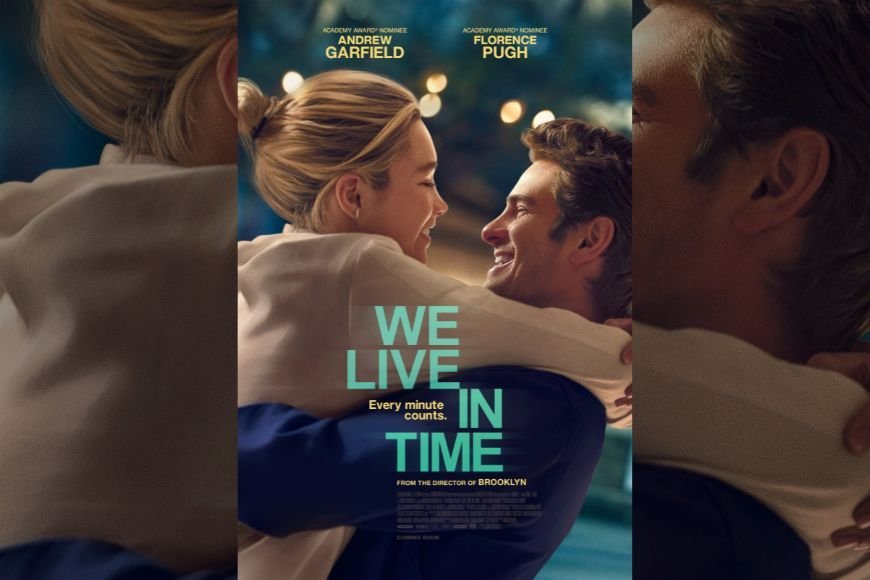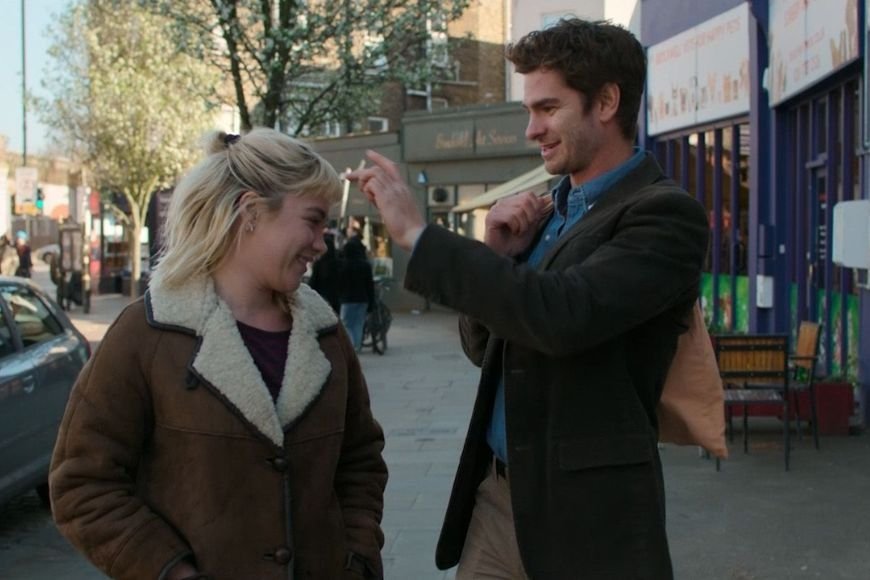We Live in Time (2025)
We Live in Time stands as a poignant addition to the genre of romantic dramas, reminiscent of The Notebook

We Live in Time: A Heartfelt Dive into Love and Loss
Overview
- Title: We Live in Time
- Genre: Romantic Drama
- Director: John Crowley
- Writer: Nick Payne
- Cast: Florence Pugh (Almut), Andrew Garfield (Tobias)
- Runtime: 2 hours
- Release Date: October 11, 2024
- Rating: ★★★★☆ (4/5)
Introduction
We Live in Time stands as a poignant addition to the genre of romantic dramas, reminiscent of The Notebook but with a distinct post-Covid era sensitivity. Directed by John Crowley and powered by stellar performances from Florence Pugh and Andrew Garfield, the film dives into themes of love, illness, and the fleeting nature of time. Premiering at the Toronto International Film Festival, it has already made a lasting impression as a tear-jerker that embraces earnest sentimentality.

Plot Summary
The film follows the intricate and deeply emotional relationship between Almut (Pugh) and Tobias (Garfield), spanning four non-linear timelines. The story begins with Almut’s devastating cancer diagnosis, forcing the couple to confront impossible choices: quality of life versus extended treatment with uncertain outcomes.
Through fragmented storytelling, the audience is drawn into the different phases of their journey:
- The Early Days: A serendipitous meeting when Almut accidentally hits Tobias with her car, sparking a love story that feels genuine and raw.
- Struggles with Illness: Almut’s recurring battle with cancer, her desire to participate in a cooking competition as a last hurrah, and the couple’s heartbreak over the possibility of a childless future.
- Parenthood: Scenes of a pregnant Almut, culminating in a realistic and emotional birth sequence.
- The End: The tender yet heart-wrenching moments of a life coming to an inevitable conclusion.
Performance Highlights
- Florence Pugh (Almut): Pugh delivers a layered performance, capturing the complexities of a woman grappling with mortality while cherishing love and life. Her emotional depth anchors the narrative, making every scene resonate.
- Andrew Garfield (Tobias): Garfield’s portrayal is equally compelling, showcasing vulnerability, anger, and unconditional love. His nuanced expressions convey more than words ever could, marking one of his finest performances to date.
The chemistry between Pugh and Garfield elevates the film, making their relationship feel authentic and deeply affecting.

Direction and Screenplay
John Crowley, known for Brooklyn, orchestrates the film with a delicate balance of sentimentality and realism. Nick Payne’s screenplay adopts a jumbled narrative structure, reflecting the fragmented nature of memories. While this approach may alienate some viewers, it aligns with the film’s emotional core, mirroring how people often recall their most poignant life moments.
Strengths
- Powerful Performances: Pugh and Garfield shine in roles that demand emotional vulnerability.
- Emotional Depth: The film explores universal themes of love, loss, and the passage of time.
- Unique Structure: The non-linear narrative, while challenging, adds layers of emotional resonance.
Weaknesses
- Overly Manipulative at Times: The film occasionally veers into emotional heavy-handedness, making the audience acutely aware of its intent to evoke tears.
- Fragmented Storytelling: The lack of clear markers for time shifts may confuse some viewers.
Conclusion
We Live in Time is a heartfelt exploration of love and loss, offering a reminder of the fleeting beauty of life. While its jumbled narrative and overt sentimentality may not appeal to everyone, the film’s earnestness and the powerhouse performances of Florence Pugh and Andrew Garfield make it a memorable watch.

For those who cherish romantic dramas and aren’t afraid to shed a few tears, We Live in Time is a must-see.
Final Verdict
- Story: ★★★★☆
- Direction: ★★★★☆
- Performances: ★★★★★
- Emotional Impact: ★★★★☆
- Overall: ★★★★☆
Mark your calendars for October 11, 2024, and prepare to be moved by this tender, beautifully acted tale.
What's Your Reaction?






























